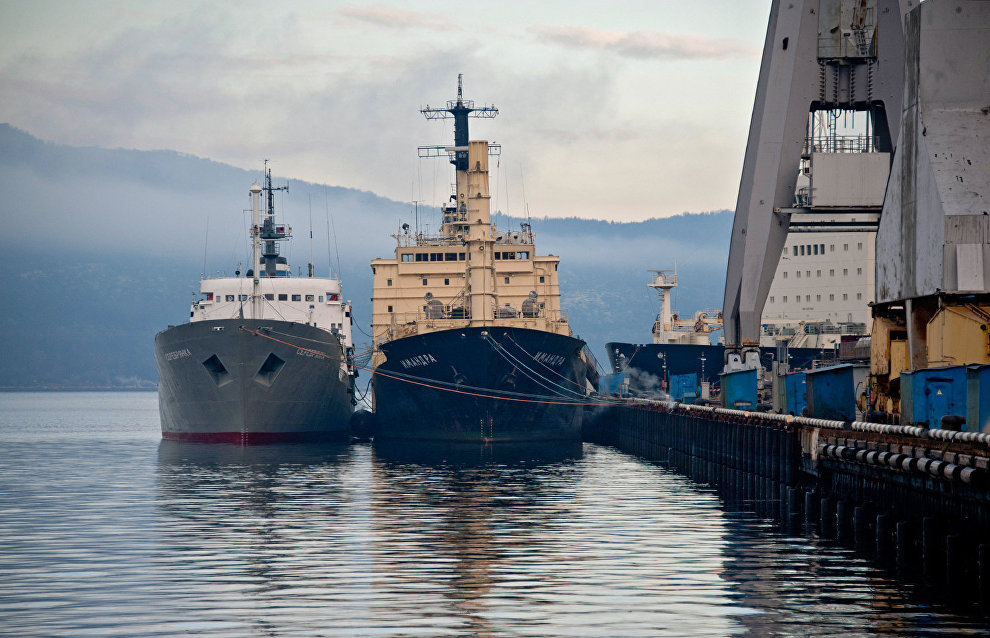Latin American and Persian Gulf ambassadors learn about Russian Arctic projects
Members of the organizing committee of Russia’s Arctic Council chairmanship introduced the heads of diplomatic missions of Latin American and Persian Gulf countries to key Russian projects for Arctic development.
From the Russian side, the event was attended by representatives of the Ministry for the Development of the Far East, the Foreign Ministry, the Far East and Arctic Development Corporation, and the Association of Indigenous Peoples of the North, Siberia and the Far East of the Russian Federation.
“We are witnessing the rise of global attention to the Arctic region. Here, climate warming is four times faster than the global average. Climate change creates conditions to develop Arctic shipping. New technological solutions, including in energy, as well as transport development, make it possible to develop deposits of hydrocarbons and critical materials that are in demand for the global energy transition. The Arctic is becoming a territory of great opportunities for interaction between various states and organizations in the interests of sustainable development, environmental cooperation and scientific cooperation,” said Nikolai Korchunov, Ambassador at Large of the Ministry of Foreign Affairs of the Russian Federation and Chair of the Senior Arctic Officials.
The diplomat invited the Latin American and Persian Gulf countries to cooperate under the project of the Snezhinka international research station in the Yamal-Nenets Autonomous Area, and also drew their attention to the Rosatom State Corporation’s projects in the field of creating low-power nuclear power plants.
“We believe the key priorities in our work are to ensure a high quality of life and the well-being of the people in the Arctic, environmental protection, preservation of the native lands and traditional way of life of indigenous peoples living in the Russian Arctic zone, development of the Arctic zone as a strategic resource base and its rational use in order to accelerate the economic growth of Russia, and the development of the Northern Sea Route as a global logistics route,” First Deputy Minister for the Development of the Far East and the Arctic Gadzhimagomed Huseynov said at the meeting.
According to Huseynov, comprehensive work to explore and sustainably develop the Arctic will continue even after Russia’s Arctic Council chairmanship is over, and it will intensify every year. Gadzhimagomed Huseynov also recalled that the Russian Arctic was declared a territory with preferential business regimes, which allow for using customs benefits within the free customs zone, mechanisms for subsidizing the construction of infrastructure for investment projects, and other tax benefits and non-tax preferences.
Currently, over 630 investment projects are being implemented in the Arctic under the system of preferences, with agreements accounting for 1.6 trillion rubles in investment, said Director-General of the Far East and Arctic Development Corporation Nikolai Zapryagayev. According to him, the largest number of projects concerned the services sector, construction, mining, logistics and tourism. Investment projects in the mining industry attracted the largest amount of investment – 42 projects totaling almost 800 billion rubles – followed by the oil and gas chemical industry (207 billion rubles) and logistics (120 billion rubles).
“The Arctic plays a huge role in the development of both the Russian and global economies. In line with the instructions of President of Russia Vladimir Putin, the region is implementing unique support programs for investment projects. Russia is open for joint work on them with all interested partners within current or future Arctic projects,” Nikolai Zapryagayev stressed.
Russia is co-chairing the Arctic Council in 2021–2023. The comprehensive program of the Russian chairmanship is aimed at promoting cooperation to improve the well-being and quality of life of people living of the Arctic, including the indigenous peoples of the North, their adaptation to the effects of climate change, preserving Arctic biodiversity and unique ecosystems, ensuring socioeconomic development, finding solutions for global energy and transport security, and advancing scientific Arctic cooperation.
